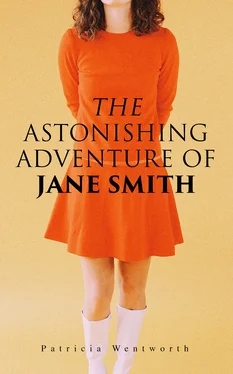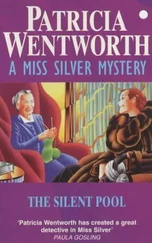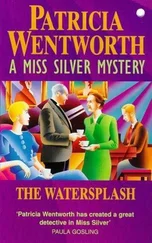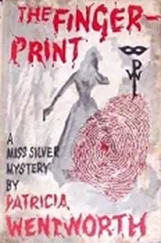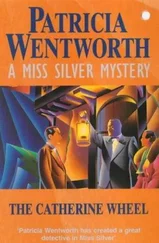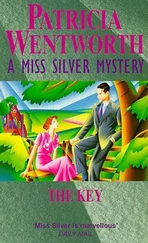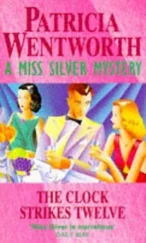Jane pushed back her chair.
“I’ve finished,” she said.
“Well, then,” said the man, “I think we must talk. Yes, sit down again, please. I won’t keep you very long.”
Jane did as she was told.
“Well, Molloy’s gone,” he said. “You know what that means? He’s washed his hands of you. Just in case—just in case, you’ve been relying on Molloy, I would like to point out to you that his own position is none too secure. The firm he works for has not been entirely satisfied with him for some time. It is, therefore, quite out of the question that he should influence any decision that may be come to with regard to yourself. His going off like this shows that he realises the position and accepts it. Self-preservation is Molloy’s trump suit, first, last, and all the time. I shouldn’t advise you to count upon trifles like parental devotion, or anything of that sort. In a word—he can’t help you, but I can .”
The man leaned forward as he spoke, and a sudden smile changed his features.
“Just be frank,” he went on. “Tell me what you really heard, and I’ll see you through.”
Jane let her eyes meet his. That smile had puzzled her; it was so spontaneous and charming, but it did not reach his eyes.
She looked and found them cold and opaque, and as she looked, she saw the pupils narrow, expand, and then narrow again.
He got up from his chair, walked to the mantelpiece, stopped for a light to his cigarette, and came back again with a thin blue haze of smoke about him.
“Perhaps I haven’t been altogether frank with you,” he said. “That little romance of mine about a firm of chemists who employ your father—you didn’t really believe it? No, I thought not. The fact is, that first night I took you for just a schoolgirl, and one can’t tell schoolgirls everything. But now, now I’m talking to you as a woman. I can’t tell you everything, even so, but I can tell you this. It’s a Government matter, a most important one, and it is vital that I should know just what you overheard.”
Jane looked down.
“I don’t understand,” she said in a low voice. “I was dreaming and I waked up suddenly. There was a screen in front of me, and some one on the other side of the screen called out very loud, ‘The door, the door!’ That’s what I heard.”
She felt the pale eyes upon her face. Then with an abrupt movement the man came over to her.
“Stand up,” he said.
Jane stood up.
“Look at me.”
Jane looked at him.
After what seemed like a very long time, he threw out his hand with an impatient gesture. It struck the table edge with a sharp rap, the spring that held his wrist watch gave, and the watch on its gold curb flew off and fell on the floor behind Jane.
She turned, glad of an excuse to turn, and bent to pick it up. The back of the watch was open; her fingers caught and closed it instantly, but not for nothing had she told Henry that she had gimlet eyes. The back of the watch contained a photograph, and Jane had seen the photograph before. Henry’s voice sounded in her ears. “It was done from Amory’s portrait of her, in 1915—the year of her marriage.”
Number Two, the man in the fur coat, Renata’s “worst of them all,” had in the back of his watch a photograph of Lady Heritage!
Jane laid the watch on the table without giving it a second glance.
Table of Contents
As the watch slid back into its place beneath his shirt cuff, the man spoke with an entire change of manner.
“Well, Miss Renata, that was all very stiff and businesslike. You mustn’t hold it up against me, because I hope we’re going to be friends. Don’t you want to know your plans?”
Jane looked at him with a little frown.
“My plans?”
“What is going to happen to you. Oh, please, don’t look so grave! It’s nothing very dreadful. You have heard of Sir William Carr-Magnus?”
“Yes, of course,” said Jane. She hoped that she looked innocent and surprised.
“Well,” said the man in the fur coat, “I happen to be his secretary, and that reminds me, I don’t believe you know my name. Your father and his friends use a ridiculous nickname which sticks to me like a burr ... but let me introduce myself—Jeffrey Ember, and your friend, if you will have me.”
The charming smile just touched his face, and then he said in a quiet, serious way:
“Sir William’s daughter, Lady Heritage, has commissioned me to find her an amanuensis—companion—no, that’s not quite right either. She doesn’t want a trained stenographer, or a young person with a business training, but she wants a girl in the house—some one who’ll do what she’s told, write notes, arrange the flowers.... I dare say you can guess the sort of thing. She is willing to give you a trial, and your father has agreed. As a matter of fact, I’m taking you down there to-day.”
“Oh!” said Jane, because she seemed expected to say something, and for the life of her she could not think of anything else to say.
“I’m afraid you’ll have to submit to certain restrictions at Luttrell Marches. You see, Sir William is engaged upon some very important experiments for the Government, and all the members of his household have to conform to certain regulations. Their letters must be censored, and they must not leave the grounds, which are, however, extremely delightful and extensive. It isn’t much of a hardship, really.”
“Oh no,” said Jane in her best schoolgirl manner.
And there the interview ended.
They made the journey to Luttrell Marches by car, but, after the manner of Mrs. Gilpin’s post-chaise, it did not pick them up at the door. An ordinary taxi conveyed them to Victoria Station, and it was in the station yard that they and their luggage were picked up by the Rolls-Royce with the Carr-Magnus crest upon the door.
The mist was thinner, and as they came clear of London, the sun came out. The day warmed into beauty, and the green growth of the countryside seemed to be expanding before their eyes. So many long hedges running into a blur, so many miles of road all slipping past. Jane fell fast asleep, and did not know how long she slept.
It was in the late afternoon that they came into the Marsh country—great flat stretches of it, set with boggy tussocks and intersected by straight lanes of water. Purple-brown and green it stretched for miles. To the right a humped line of upland, but to the left, and as far as the eye could see in front, nothing but marsh. Then the road rose a little; the ground was firmer and carried a black pine or two.
They came to a three-cross way and turned sharply to the right. The ground rose more and more. They climbed a steep hill, zigzagging between banked-up hedges to make the rise, and came out upon a bare upland. Ahead of them one saw a high stone wall pierced by iron gates. The car stopped. Mr. Ember leaned out, and after a pause the gates swung inwards.
For a mile the drive lay through a flat waste of springing bracken, with here and there a group of wind-driven trees, then a second gate through a high fencing topped with wire. An avenue of trees led up to the house, a huge grey pile set against a sky full of little racing clouds.
Jane felt stiff and bewildered with the long drive. She followed Mr. Ember up a flight of granite steps and came into the great hall of Luttrell Marches with its panelled walls and dark old portraits of half-forgotten Luttrells.
Exactly opposite the entrance rose the stairway which was the pride of the house. Its beautiful proportions, the grapes and vine leaves of its famous carvings, were lighted from beneath by the red glow of a huge open fire, and from above by the last word in electric lighting.
Читать дальше
